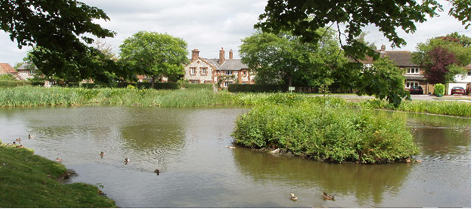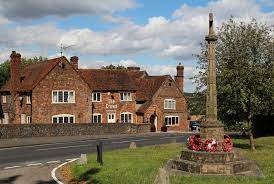
THE OWNERS of Penn’s oldest pub, the Crown, have received conditional planning permission to upgrade and expand the pub.
Brewers Greene King say they will convert the pub from its current Chef and Brewer brand to its “highest quality Crafted Pub” brand but promise they will “respect the history and heritage of both the pub and its surroundings.”
They add: “We aim to bring life to the individuality of the establishment, celebrating its history but making it relevant for today.”
Key to the change is a bigger, modern kitchen enabling chefs to provide a “significantly enhanced and higher-quality food” menu. There will be improved toilet facilities, including disabled toilets, a “garden room” extension to the rear plus family “dining pods” in the gardens.
The garden area itself will be landscaped with patio “islands” and ramped pathways to enable better disabled access.
Greene King spent nearly a year discussing details of the plan with Buckinghamshire Council planners in an attempt to overcome earlier objections to the scheme, mainly over potential extra noise and disruption to residents of the elderly people’s accommodation, Penn Mead, next door. This time round there were no objections to their application.
The company said some of the 450 year old Grade 2 listed building was in a poor condition and a deteriorating state of repair “as a direct consequence of a lack of investment in the premises over the last 20 years”. Now, it says, it will be able to invest to keep the building in a good state of repair.
From Roundheads to the Home Guard – see the history of the Crown and its customers below.
Gomm Valley: Council bites back and accuses Taylor Wimpey of breaking the rules

IN AN EXTRAORDINARY twist, Buckinghamshire Council has told the Government that a planning inquiry due to be held in March into a major housing development in Tylers Green should be cancelled because it contravenes the rules.
Developer Taylor Wimpey wants to build 540 houses and other facilities in the Gomm Valley and has tried to fast track approval for its plan by taking its application directly to a planning inquiry, overseen by a Government appointed planning inspector (see the last blog).
The company justified its move by accusing the council of taking too long to make up its mind about the controversial proposal.
But in an astonishing response the council has accused the company of talking nonsense.
In a long letter to the Planning Inspectorate the council details every meeting its planning officers held with Taylor Wimpey and what occurred at the meetings. It concludes that if Taylor Wimpey wanted to use the mechanism it is now using it should have done it ten months ago.
Consequently, it says, its appeal is out of time and invalid.
The planning inspector, who is yet to be publicly named, is expected to make a decision this month on whether the inquiry should ago ahead, presumably after taking advice from Government planning lawyers.
This blog has asked Taylor Wimpey if it wishes to comment.
*In the event of the inspector rejecting the council’s arguments and allowing the appeal to proceed, the council has submitted its summary evidence to the inspector.
See below: Council’s 17 reasons to reject the Gomm Valley development plan.
Peter Sachs: gifted scientist and compassionate friend of our community
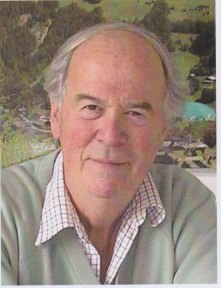
PETER SACHS, who chaired and helped develop Penn and Tylers Green Village Care for many years, died on 27 November three days before his 90th birthday.
A quiet and unassuming man, Peter led the charity with a gentle and polite authority. But behind the compassion lay an extraordinary story of invention and determination.
Born into a Jewish family in Leeds in 1933 his parents made an unfortunate decision to move to Berlin when he was a baby to run a business. It was just at the time when the Nazis had taken control and began their reign of terror against the Jewish community.
Peter remembered nothing of the torment his family suffered over the first four years of his life but he did recall the sense of relief arriving in London with his family in 1938 and the trauma of their home in Putney being hit by two incendiary bombs in the early part of the war.
He was to return to the consequences of the war 50 years later when he retired after an incredibly successful career in science. His family had owned an office building in central Berlin which was seized at first by the Nazis and then, after the war, by the East German communist government.
After a long, complex and arduous struggle, he and other members of his family successfully obtained restitution for the property stolen from them 60 years earlier.
During the in-between years Peter won a scholarship to Cambridge and then joined the Royal Navy in the 1950s, serving on Britain’s last battleship, HMS Vanguard and navigating a minesweeper in the ill-fated Suez campaign. Later, based at the high-security naval establishment in Portland, he was part of a team developing top-secret, world-first underwater sonar equipment.
In the 1960s he joined Marconi and was part of a team developing Britain’s first communications satellite, Skynet 2, and in the 1970s he moved to Rank Xerox, responsible for the production of the world’s first mass-produced fax machines. He ended an illustrious career as director general of the Electronic Industries Association, an organisation crucial to the standardisation of the electrical and digital equipment we take for granted today.
Peter moved to Manor Road in the village shortly after he married his second wife Ann in 1982. They both had three children from previous marriages and both shared a love of music. He was an accomplished cellist, playing and for some years organising the Misbourne Symphony Orchestra.

Village Care is a charity set up 28 years ago with volunteer drivers and telephonists helping people in the community who are incapacitated, ill or in distress and need help with transport or other problems. Peter was involved from its early days and became its chairman for many years before retiring a few years ago.
He described it as “a wonderful charity with wonderful people who just want to help”. With typical modesty he refused to take any credit for its success and popularity. “Any problems are usually solved by the volunteers themselves; they hardly ever come to me.” he said.
He loved attending Village’s Care’s major annual fund-raiser Open Gardens and was to be found enjoying its delights last summer, despite increasing frailty. In fact, the last time Tina and I chatted to him was on Open Gardens day in a beautiful garden where he was sitting in the sunshine with tea and cake, laughing, smiling and enjoying everyone’s company. He’ll be greatly missed.
Local news
Final cut – Filippo Festa, our area’s longest serving barber, hung up his scissors and retired at the end of the year. He ran the salon now called John’s in Rose Avenue from the 1990s until he reduced his workload to a couple of days a week four years ago. Before that he worked for many years at the men’s hairdressing salon at Hazlemere Crossroads. Filippo, aged 80, hails from Naples and always brought some Italian sunshine into his customers’ lives, especially if Italy was doing well in European football and World Cup competitions!
Danger road – The parish council is seeking to have signs warning motorists of pedestrians in the road on the stretch of Hammersley Lane without a footpath after a number of near misses.
New meadow – Work has begun to create new meadow areas with different habitats in Penn Jubilee Wood between Beacon Hill and Gatemoor Lane. Volunteers from the Chiltern Society are building gates and fencing and installing pipes for water troughs to be used later by grazing cattle. The work is being funded by the Chilterns Conservation Board and the Department for Environment, Food and Rural Affairs.
Festival funds – The Christmas Tree Festival at Holy Trinity Church, Penn raised £469 for the Alexander Jansons Myocarditis UK fund. Alexander, of Beacon Hill, Penn, died of the rare heart condition 11 years ago aged 18.
Homeless help – Penn and Tylers Green Scouts have so far raised nearly £1,600 for Wycombe Homeless Connection after delivering nearly 1,300 Christmas cards around the village for free in return for a contribution to their Just Giving page. The donation page remains open for the first two weeks in January on this link: https://www.justgiving.com/page/Penn-and-Tylers-Green-scout-group-1699023403994
On patrol – Second year trainee police officers are being added to the neighbourhood police team in the Penn and Tylers Green area from this month to assist the existing team comprising an inspector, a sergeant, two constables and four police community support officers. Provisional figures indicate reported crime in the area fell slightly last year compared to 2022.
Nursery saved – Buckinghamshire Council has rejected a plan by Shanly Homes to demolish a nursery which caters for 21 children in Chestnut Lane, Hazlemere and build two semi-detached houses in its place. The council said its Local Plan says if the nursery is part of a redevelopment scheme a new nursery should be included, but the developer said that wasn’t a viable proposition.
On form – Tylers Green Middle School football teams excelled in a Buckinghamshire football competition against schools throughout the county. The girls team reached the final where they lost 1-0 to Gerrards Cross. The boys team also performed admirably, finishing fourth overall.
Fun Run cheque – A cheque for £3,500, raised from last year’s Penn 7 /Fun Run/Party on the Common events, was presented to Penn and Tylers Green Village Care at a Christmas celebration event at the Sports and Social Club.
All to play for as election year arrives
FOR THOSE who enjoy the cut and thrust of political debate and close fought elections, this area used to be boring.
For decades the three constituencies in our area – Wycombe, Beaconsfield and Chesham/Amersham – were rubber-stamp Conservative strongholds.
Not any more.
A mix of boundary changes, swinging political allegiances, an injection of local candidates and some interesting local opinion polls mean that two of the three could even be described as on a knife-edge.
In Penn’s constituency poll predicts Lib-Dem hold

It all began, of course, in 2021 when Liberal Democrat Sarah Green overturned the late Cheryl Gillan’s 16,000 Conservative majority to win the Chesham and Amersham by-election – the constituency that includes Penn – with an 8,000 majority.
The Tories held a private inquest and concluded the shock defeat came about because of HS2 (an expensive white elephant that benefits neither the country nor the constituency); housing (not building houses per se, but building too many in the wrong places without apparent regard to the impact on existing schools, health services, roads etc) and the perceived ‘imposition’ of a candidate from outside the area.
The Government and local Conservatives acted to change things. The second phase of HS2 was cancelled; there are proposals to change housing policy by relieving councils of their obligation to build in green field sites; and a local candidate has been selected for the next election, Gavin Williams, the deputy leader of Buckinghamshire Council.

But will it be enough? An opinion poll in the constituency in the autumn suggests not.
Electoral Calculus, an opinion poll website that takes into account local polls, boundary changes and shifting demographics, predicted that Ms Green would hold her seat, albeit by just a few hundred votes. It reckons the Nigel Farage-backed Reform Party could collect up to 3,000 former Tory votes in the constituency. Much too depends on whether the anti-Conservative electors vote tactically.
In Tylers Green’s constituency poll predicts Labour win

Meanwhile, Electoral Calculus predicts that unless Conservative fortunes change dramatically the Wycombe seat, which includes Tylers Green, will switch to Labour.
The sitting Wycombe Conservative MP, Steve Baker, admitted to the Local Democracy Reporting Service that he will have a fight on his hands after boundary changes shifted the Hazlemere ward from Wycombe into neighbouring Chesham and Amersham constituency.
He is quoted telling the service: “Without Hazlemere the numbers show that this seat would go red. At the election people are going to have to make very serious choices.”

Mr Baker, who is defending a 4,214 majority, will battle it out with Labour’s Emma Reynolds, a former Shadow Cabinet MP who lives in Holmer Green and is considered to be on the moderate wing of the Labour Party. While Mr Baker fought for Brexit, Mrs Reynolds campaigned for Britain to stay in the EU.
Beaconsfield will stay Conservative says poll

In Beaconsfield, Electoral Calculus reckons Conservative MP Joy Morrissey should safely hang on to a comfortable majority even though it predicts over 5,000 former Tory votes could go to Reform.
Still, opposition candidates in Beaconsfield should take heart from the fact that it’s a good place to cut your political teeth. In a 1982 by-election a fresh faced 29-year old barrister stood for Labour and took just 10 per cent of the vote. But things didn’t turn out too bad: his name was Tony Blair.
FOOTNOTE : Latest register of MPs financial interests shows that Steve Baker received £51,250 from 10 individual supporters in 2023 (up to end of Oct.) Sarah Green and Joy Morrissey did not declare any direct donations but Mrs Morrissey declared receiving £12,000 worth of research services as a donation in kind.
A different world
TIMES ARE always changing, but perhaps none more so than in the local shopping streets.
Last year some of our local specialist shops went online only, while we lost our final bank branch at Hazlemere crossroads. How different from 100 years ago.
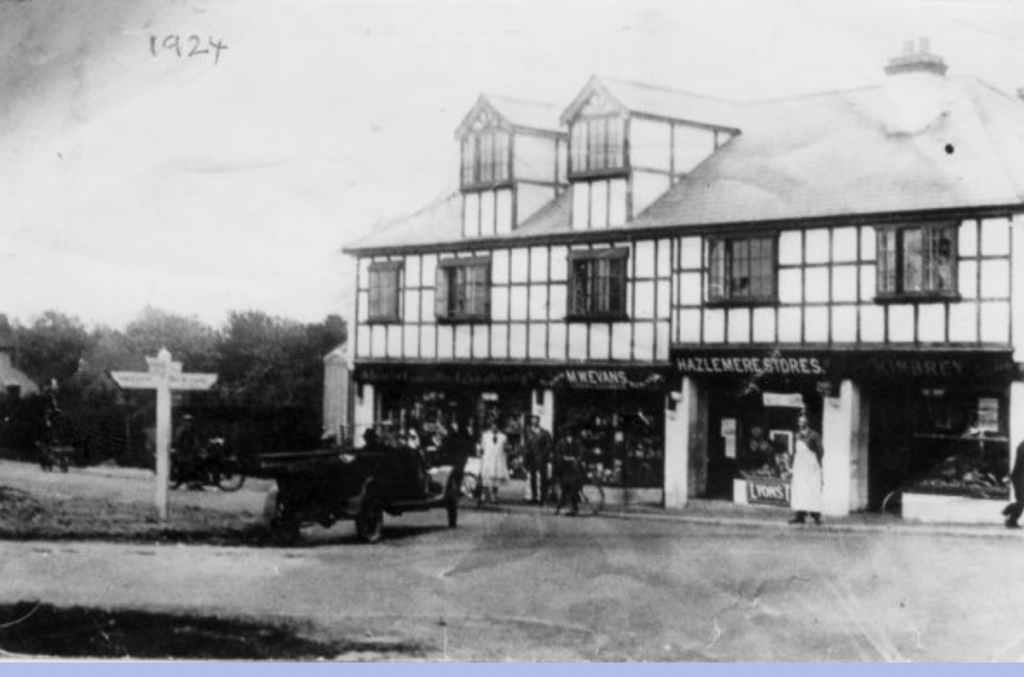
The 1924 Kelly’s business directory shows there were 54 commercial premises in Penn and Tylers Green alone, including two banks, Lloyds and Barclays.
There were five pubs plus three beer houses (pubs that only sold beer); four grocery shops, three butchers, three drapers and four farmers on farms over 150 acres selling milk and other dairy products plus in-season fruit and veg. There was a fruiterer, a fishmonger and a baker; plus a cobbler/shoe maker, a carpenter/undertaker; a coalman, a basket-maker, a mat maker and various builders.
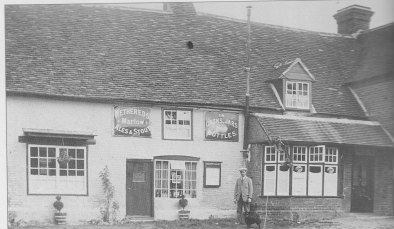
The Red Lion ran a separate business as a tea shop, able to cater for “bean-feast” parties, whereas Ivy Cottage in Penn advertised its rather more sedate tea garden. There was a garage and two job masters (owners of livery stables who rented out horses and carriages) as well as our own bus station – the Penn Motor Bus Company had been launched in 1923 and had its garage off St John’s Road where Kite Wood Road is now.
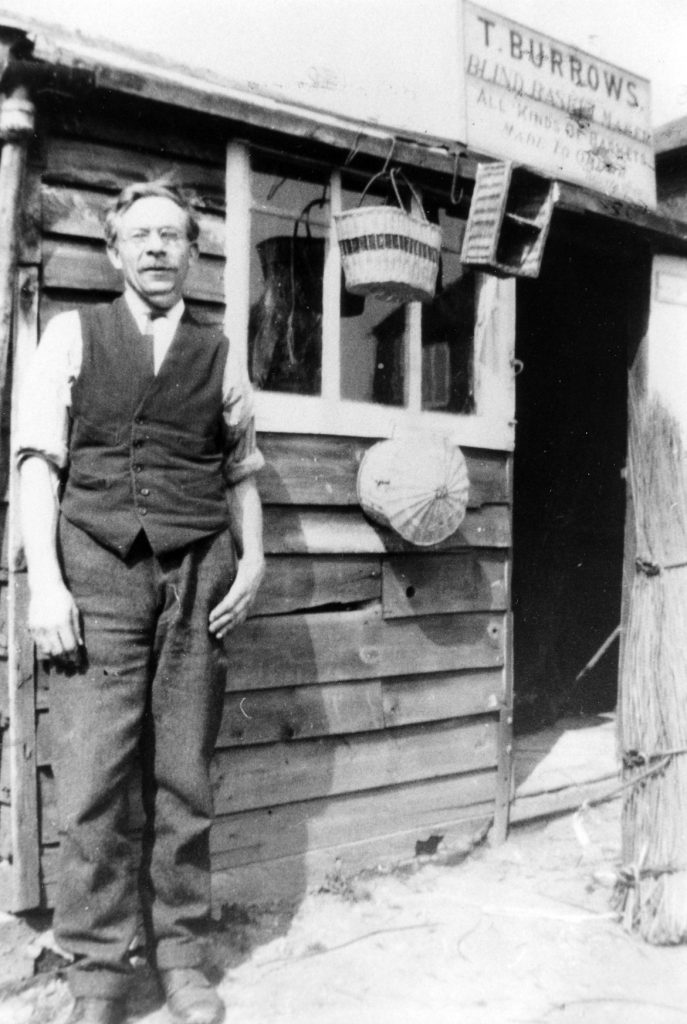
Add to that a doctor, a hairdresser and various professional occupations all serving a population that was roughly half what it is today. No wonder some people hardly needed to leave the village at all.
A pub at the centre of village life and intrigue for nearly 450 years…
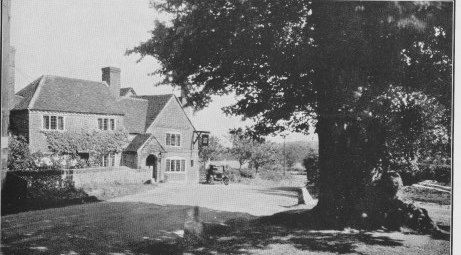
IT’S NOT only shops that change with the times. Pubs too have to change or die – hence the plan to expand the dining facilities at our oldest pub, The Crown. It’s a long way from where it all began…
It’s thought to have started life as an alehouse in the mid 1570s when Elizabeth 1 was on the throne and the Spanish Armada was a decade away.
In the English Civil War it was often visited by Roundhead soldiers and the story goes one of them got so drunk in the pub one night he stopped for a wee on his way home at Long Pond, outside Stonehouse Grange in Church Road, lost his balance, fell in and drowned.
In 1643, the night before the Battle of the Rye, a group of Roundheads are said to have stayed there before marching down Hammersley Lane to have it out with the defending Royalists. They failed and some were chased by the Cavaliers up Amersham Hill, leading to another bloody skirmish at what is now Hazlemere golf course.
Although there are still bits of 16th century brickwork remaining, the pub has been much altered over the years and most of what we see today dates back 200 years.
In the 19th and early 20th century it was the gathering point for various hunts, where red coated huntsmen on horses accompanied by scores of hounds, enjoyed a tot before galloping off in pursuit of foxes. During that time the Earl Howe of the day often held shooting parties on the Penn estate and put up ‘beaters’ and other workers at The Crown.
In the 1920s, David Wooster, who lived on neighbouring Pennbury Farm, was friends with Walter Carden, the landlord’s son. He wrote in his memoir: “The landlord’s mother was quite a character. On the occasion of my tenth birthday she invited me into her little room where I was given a glass of port.”
David recalled that in the 1930s, Lord Dawson of Penn, King George V’s physician, who lived in what is now The Chinnery in Church Road, Penn was “very fond of a tipple at The Crown and merry times were had.”
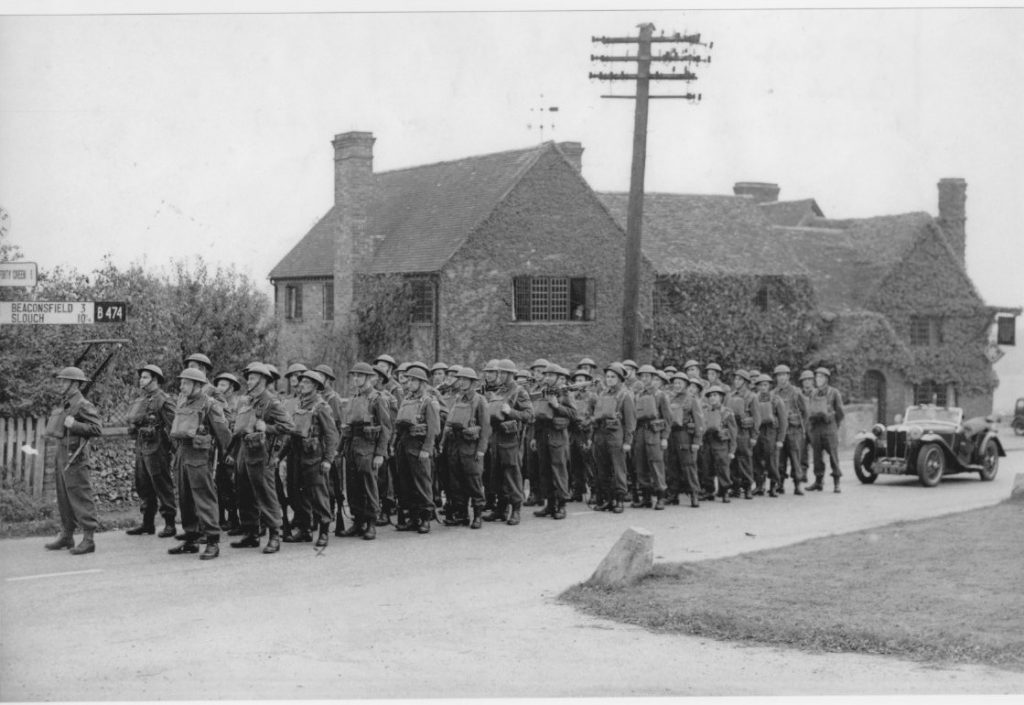
During the Second World War the Penn and Tylers Green Home Guard used the pub as their base and they and others would take it in turns to “fire watch” from the top of the Holy Trinity Church tower opposite. From there they observed the flames of London during the Blitz.
During the 1930s the pub became a hotel for a time and then in the sixties it began to concentrate more and more on providing food, the owners converting most of the building into a pub/restaurant.
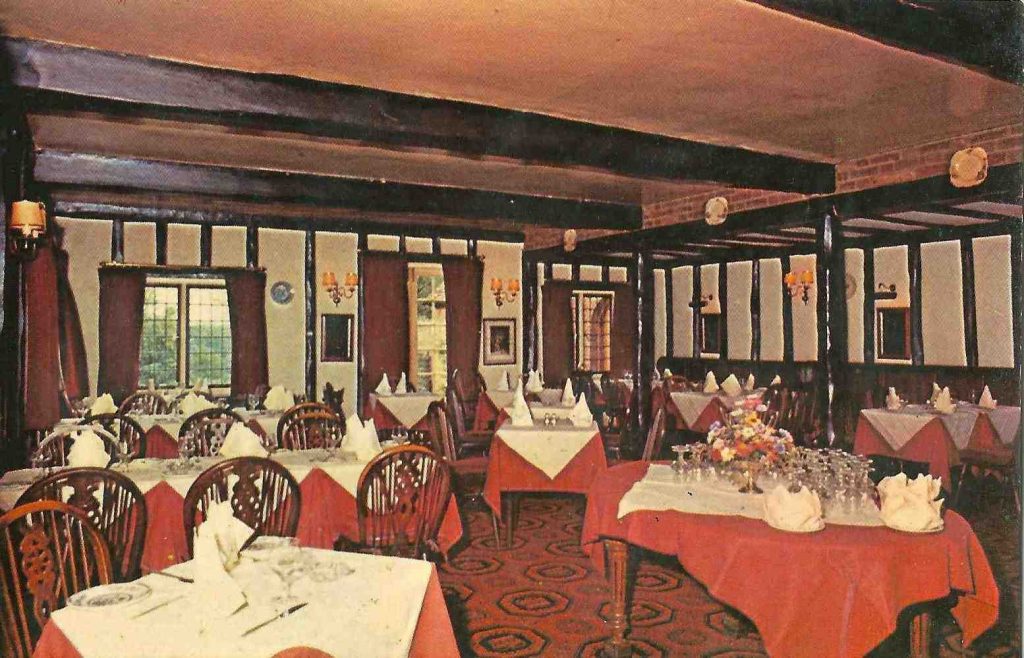
Council’s 17 objections to the proposed Gomm Valley development
BUCKINGHAMSHIRE Council has submitted a detailed response to the Planning Inspectorate explaining why, in its opinion, the Taylor Wimpey Gomm Valley proposal is contrary to current local, regional and national planning policies.
Here they are in summary:
1. As currently proposed the development could have a “severe impact” on the local highway network.
2. Development too reliant on private car use. Insufficient attention given for cycling and walking routes.
3. No information on safe or suitable access and parking regarding the proposed new school.
4. No information on safe or suitable access and parking regarding the purposed employment site.
5. Potentially unsafe roads on the site: some bends too sharp while some others too narrow for buses. Inappropriate parking areas and cul-de-sacs.
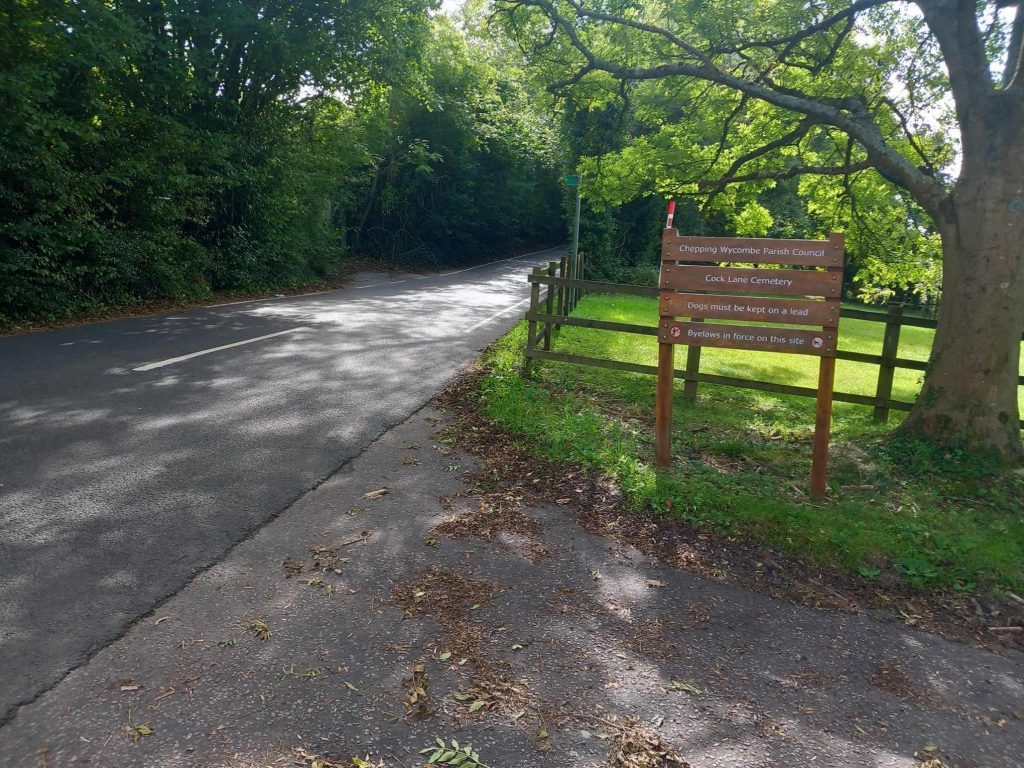
6. A safe and suitable access to the site from Cock Lane, Tylers Green not demonstrated.
7. Not a “landscape-led” development. As proposed it would result in “harm to local landscape character and visual amenity.”

8. Lack of good building design making the scheme “detrimental to the character and visual amenity” in the valley. Excessive amounts of cut and fill; an inflexible approach to road gradients; and an insufficient sustainable drainage system. “Extensive use of standard house types and layouts that do not respond satisfactorily to a sloping site.”
9. Insufficient detail on the visual impact of the proposed employment site.
10. The use of walls and embankments, insufficient separation distances and ground level differences would result in “unacceptable overlooking and overbearing impacts on future occupiers.”
11. Insufficient privacy for future occupiers of the proposed apartment blocks. Proposed open space next to one area would enable people to be in close proximity to upper floor windows and balconies of some of the flats.
12 Substandard parking bays for apartments with inadequate provision for wheelchair user dwellings.
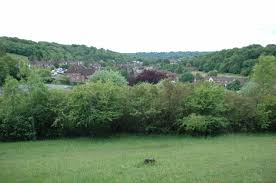
13. Failure to achieve “ecological connectivity and adequate mitigation” following the removal of hedgerow between Pimms Grove and Little Gomms Wood.
14. Proposal as it stands could have an unacceptable impact on Pimms Grove Ancient Woodland.
15. Failure of any plan to retain, enhance, create and manage the wildlife habitats in the undeveloped area of the site.
16. Failure to ensure that flood risk is not increased on the site or elsewhere.
17. The absence of any legal agreement (and one, so far is not proposed) would enable Taylor Wimpey to ignore a host of obligations, including affordable housing and contributions to local sporting and leisure facilities and countryside protection.
Further objections have been submitted from the Berks, Bucks and Oxon Wildlife Trust and the environmental health authority on ecological and noise pollution issues, as well as Chepping Wycombe Parish Council, the Penn and Tylers Green Residents’ Society and hundreds of individual members of the public.
The health service says a substantial financial contribution would be needed from the developers to enable expansion of local health provision as existing GP surgeries in the immediate area are at full capacity.
Natural England has written to the inquiry to say that it is considering changes to the boundary of the Chilterns Area of Outstanding Natural Beauty (which abuts the Gomm Valley) and that “the impact of the proposal on the natural beauty of this area may be a material consideration in the determination of the development proposal.”
Regional news

Cliveden wedding – BBC TV breakfast weather presenter Carol Kirkwood married her police officer partner Steve Randall at Cliveden House, Taplow. The couple live near Maidenhead. Picture: ABIchadwick Photography
Final curtain – The White Horse pub, in West Wycombe Road, which hosted bands including Coldplay, Kings of Leon and The Damned in their early days, closed it doors for good at the end of the year. It’s expected to be demolished and replaced with housing.
Selling the assets – Cash strapped Buckinghamshire Council is to sell some of its property to help its finances. The former Chiltern District Council offices in Amersham look to be first in line with staff relocated. The council is even considering selling its tower block headquarters in Aylesbury and then renting part of it back. Council leader Martin Tett says, however, that it’s inevitable some council services will be cut and charges for others increased this year.

Hornet fan honoured – The street alongside Watford football club’s ground has been renamed Yellow Brick Road in honour of Sir Elton John, a lifelong supporter. Picture: Watford Observer.
Hospital stand-by – Bucks Healthcare Trust has prepared Olympic Lodge – a guest accommodation linked to Stoke Mandeville Stadium – as a back-up if local hospitals become overwhelmed this winter. The move is part of a “winter plan” the county’s health bodies, emergency services, council and social services worked on last year in an attempt to reduce waiting times for patients in ambulances and emergency departments as well as improve admission and discharge processes across the entire Bucks health system.
Memorial garden – A Covid Memorial Garden is to be opened this month at the Grade 1 listed Stoke Poges Memorial Gardens.
Healthcare delays – A third of education, health and care plans in Buckinghamshire last year took more than the legally-required 20 week timeframe to put together, Penn’s MP Sarah Green told the House of Commons. Education Secretary Gillian Keegan told her the Government was training more people to meet the need and looking to simplify the process.
Renewals fall – The number of people prepared to pay for green bin emptying in the Wycombe area, including Tylers Green, fell when the time came to renew for a second year. In the first year 49 per cent of households paid the £50 annual charge. Last year 42 per cent paid the £60 renewal fee.
Mini conversion – BMW begins a £600m conversion of its Cowley car factory at Oxford this month which will result in it producing only electric cars in two years time.

Crossing point – Groundwork has been completed on a major rail cross-over point at Calvert, near Aylesbury Bucks where the under-construction East-West line between Oxford and Cambridge crosses over the under-construction HS2 London to Birmingham line. There’s no facility for future passengers to change trains there however. Trains are expected to run on the first leg of the east-west crossing, from Oxford to Milton Keynes, next year. Picture:HS2
80 years ago this month – Freezing classrooms, village hall dances and “Put that light out!”
This year this blog plans to take a regular look at what was happening here in 1944, a memorable year of enormous change locally, nationally and internationally.
January 1944
THE TIDE was turning in favour of the Allies after three years and four months of war, and although no-one had any idea when the conflict would end, everyone knew an end was in sight.
Consequently radical plans were being made for a post-war Britain, not least in our schools.
On 17 January the politician Rab Butler introduced an Education Bill, which became law in the summer and which, for the first time, provided free secondary education for all pupils. It also raised the school leaving age from 14 to 15 (subsequently postponed for two years) and provided school meals and milk for all children.
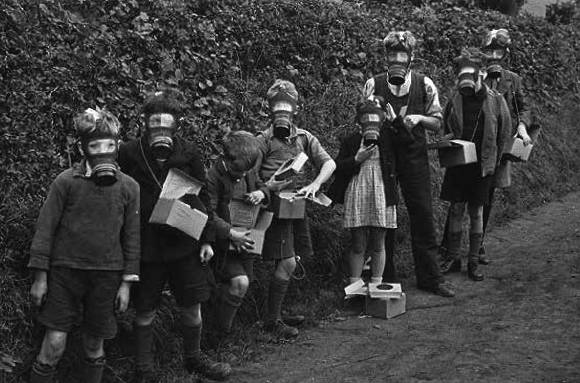
Schools had a tough time in the war, not least here in Penn and Tylers Green. At Tylers Green School (now the first school) there were 169 pupils at the beginning of the war which jumped virtually overnight to 289 when evacuees from Ealing and Marylebone arrived.
Later German Jewish children who had escaped Nazis just days before war and spent the next few years at the vicarage in Hammersley Lane were also incorporated into the school even though they spoke not a word of English.
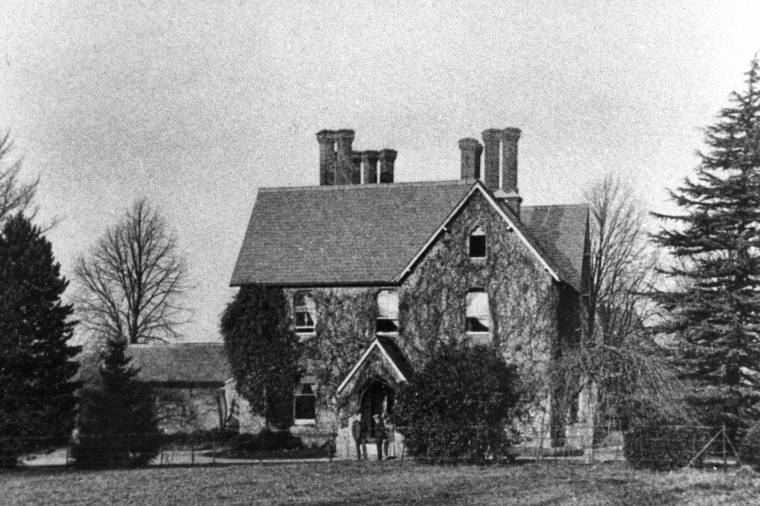
At the smaller Penn Church School (where Penn Parish Rooms is today), 50 evacuees arrived, doubling the number of children attending the school.
It was decided to split the school day in two – teaching local children in the morning and evacuees in the afternoon.
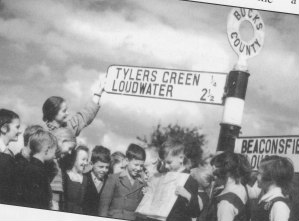
In winter children often had to sit in their coats all day because there was no coal to heat the classroom fires. Many were also pulled out of school, particularly at harvest time, to help on local farms.
Now, in 1944, there was a teacher shortage because many of the London teachers who arrived with the evacuees had returned to the capital because many of the evacuees, but by no means all, had also returned.
But there were treats. At Tylers Green there were trips to the swimming pool at The Danes in Hammersley Lane, while Penn Church School children went boating on the lake at Watercroft in Church Road, Penn.
Elsewhere that chilly January:
- The Belgian Ambassador visited Tylers Green Village Hall to hear a concert by Belgian refugees in aid of the Belgian Red Cross
- There were dances every Wednesday and Saturday nights by local bands (2/6d [12p] admission; a shilling [5p] for Armed Forces) also at the village hall.
- Penn Music Group organised its first classical concert to a packed village hall which included Irish songs from an RAF officer billeted in the area.
- A bus conductor from Flackwell Heath was taken to court and fined £3 for being persistently late for work. Because he didn’t turn up on time for the 6am bus it was deemed he was hindering the war effort because he held up workers trying to get to High Wycombe factories.
- Also in court a Beaconsfield woman was fined £1 for allowing a light to shine out of her bathroom window (a black-out was still in force at night). Her excuse that she had to open the window to let the steam out was dismissed.
- In the New Year Honours there was an OBE for Group Captain F. Todd, the headmaster of Holmer Green School in 1939 who joined up on the first day of the war and went on to become a distinguished Battle of Britain pilot. And an MBE for Penn man W.J. Pusey who was the assistant to the House of Commons Speaker.
- A warning from local milk companies that they would not deliver milk to people who did not ‘return the empties’ did not really affect people in Penn and Tylers Green. Most still got their milk from milk churns filled on local farms and delivered around the streets.
You can contact this blog at peter@pennandtylersgreen.com. It will be updated as necessary through January but will be next fully updated on 1 February.
